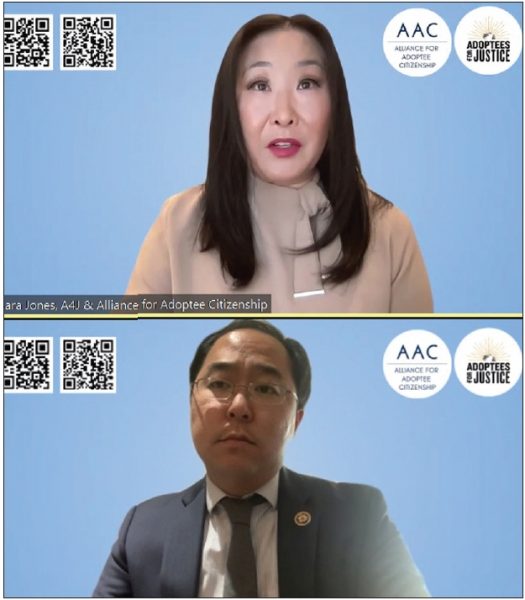“The Adoptee Citizenship Act (ACA) is not an immigration issue, it’s an issue about restoring the rights of American citizens, and it deserves as much attention as it gets because it has the potential to pass this session, and possibly even after the presidential election.”
U.S. Rep. Andy Kim (D-NJ 3rd District) emphasized the importance of the Adoptee Citizenship Act, a bill that would grant citizenship to adoptees who were legally adopted into the United States but do not have citizenship. An estimated half of all U.S. adoptees without citizenship are from South Korea.
“We’re trying to get it passed as a package deal with other bills,” Kim said during an online press conference hosted by the Adoptees for Justice and the Alliance for Adoptee Citizenship on September 10. “We have to be careful that it doesn’t get buried in the immigration debate,” he said.

“I don’t think it’s a big deal to pass the House, but it’s the Senate,” Kim added. “We need to rally the community and get the word out about the issues of undocumented adoptees to build support.” Another key issue is convincing adoptees with criminal backgrounds to be granted citizenship.
If elected to the U.S. Senate, Kim said he will continue to work on these issues. Kim is the first Korean American to run for the U.S. Senate.
Emily Warnecke, a Korean-American adoptee who participated in the press conference, said, “I was adopted when I was three months old and came to the U.S., and I didn’t realize until much later that I was not a citizen.”
“I have lived in the U.S. for 60 years, worked here, paid my taxes, and now I am stateless without benefits and facing deportation,” she said.
The Adoptee Citizenship Act aims to give noncitizen adoptees a pathway to citizenship and relief from the threat of deportation. The Child Citizenship Act, passed in 2000, granted automatic citizenship to adoptees born after the end of February 1983, but left adoptees who fell through the gaps in the law without a remedy. Congress has introduced legislation every session to fill the legal loophole, but it has been repeatedly rejected.
BY EUNBYUL KIM, HOONSIK WOO [kim.eb@koreadailyny.com]




